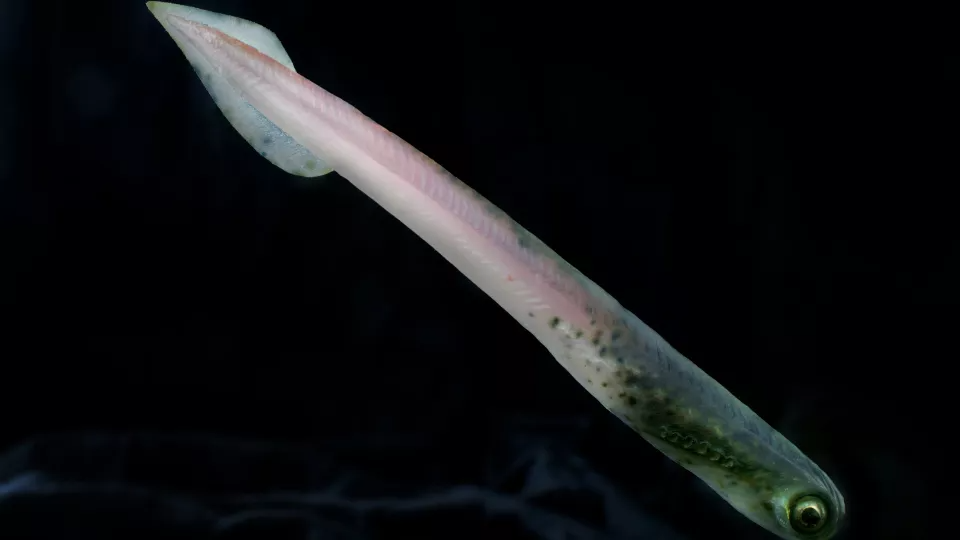Researchers Name Ancient Eel-Like Species After Black Sabbath Guitarist
In a recent study, a group of geology researchers at Lund University unveiled three newly discovered species of conodonts, a type of jawless ancient fish
 Drepanoistodus iommii (Model and photo: Esben Horn) One of the species has been named Drepanoistodus iommii - a tribute to Black Sabbath guitarist Tony Iommi.
Drepanoistodus iommii (Model and photo: Esben Horn) One of the species has been named Drepanoistodus iommii - a tribute to Black Sabbath guitarist Tony Iommi.
About 470 million years ago, eel-like fish swam around in the Baltoscandian basin - a shallow sea that covered parts of present-day Scandinavia and the Baltics. The fish belonged to the animal group conodonts, which today is an important fossil group with around one thousand known species. The conodonts are used, among other things, for so-called biostratigraphy - a method used for determining the age of sedimentary rocks.
In the new study published in the journal European Journal of Taxonomy, a Swedish-Danish research team introduce three completely new species within the conodont genus Drepanoistodus.
“The discovery was made in 2012 by the river Lynna, 150 km east of St. Petersburg. The collected material has been at our department ever since. However, now that we have analyzed everything, we have discovered fossils for three previously completely unknown species”, says Mats E. Eriksson, a geology professor at Lund University.
Eriksson, who himself is an avid metal enthusiast and hobby musician, has previously named four fossils after rock musicians. That is why King Diamond, Lemmy Kilmister (Motörhead), Alex Webster (Cannibal Corpse) and Frank Zappa are today represented in the geology books.
“It felt completely natural to name the new fossil after Tony Iommi. Black Sabbath is the ancestor of the entire heavy metal genre. When it comes to riff creation, he is a genius”, concludes Mats E. Eriksson.
Publication: Jan Audun Rasmussen, et al. Middle Ordovician Drepanoistodus (Vertebrata, Conodonta) from Baltica, with description of three new species. European Journal of Taxonomy, (2023). DOI: 10.5852/ejt.2021.774.1533
Original Story Source: Lund University

 Alerts Sign-up
Alerts Sign-up